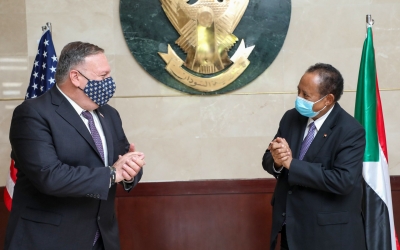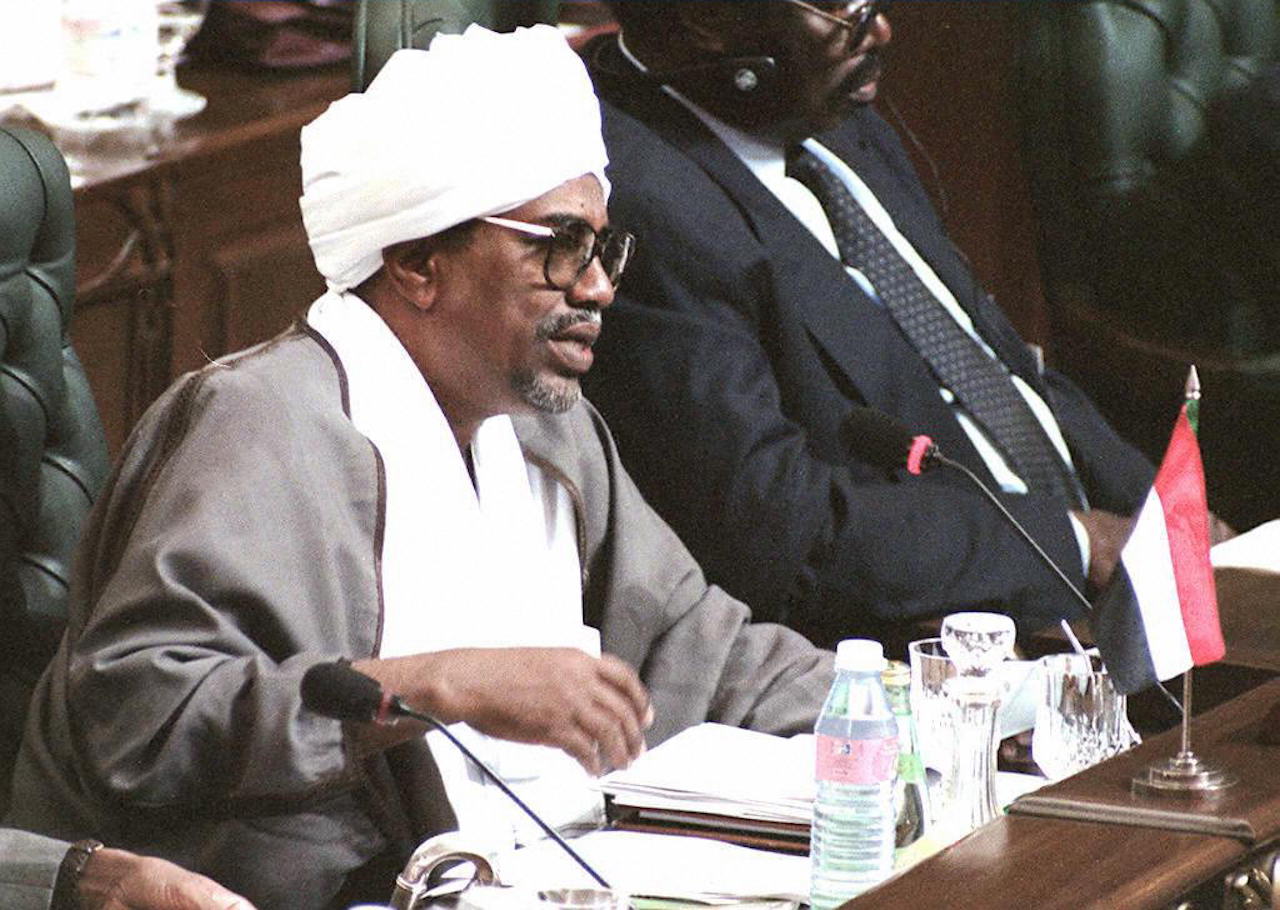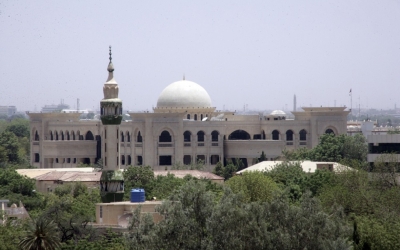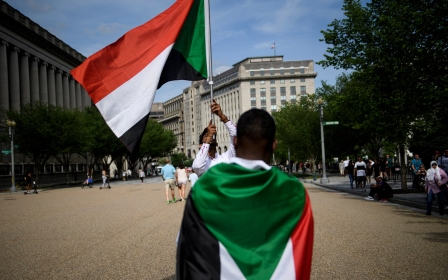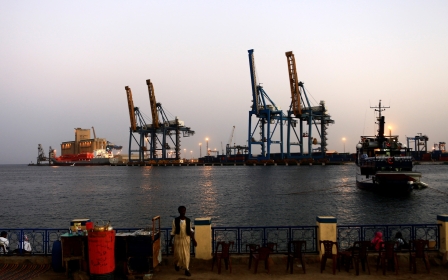How Trump's tweet signalled $335m Sudan payment to end decades of sanctions
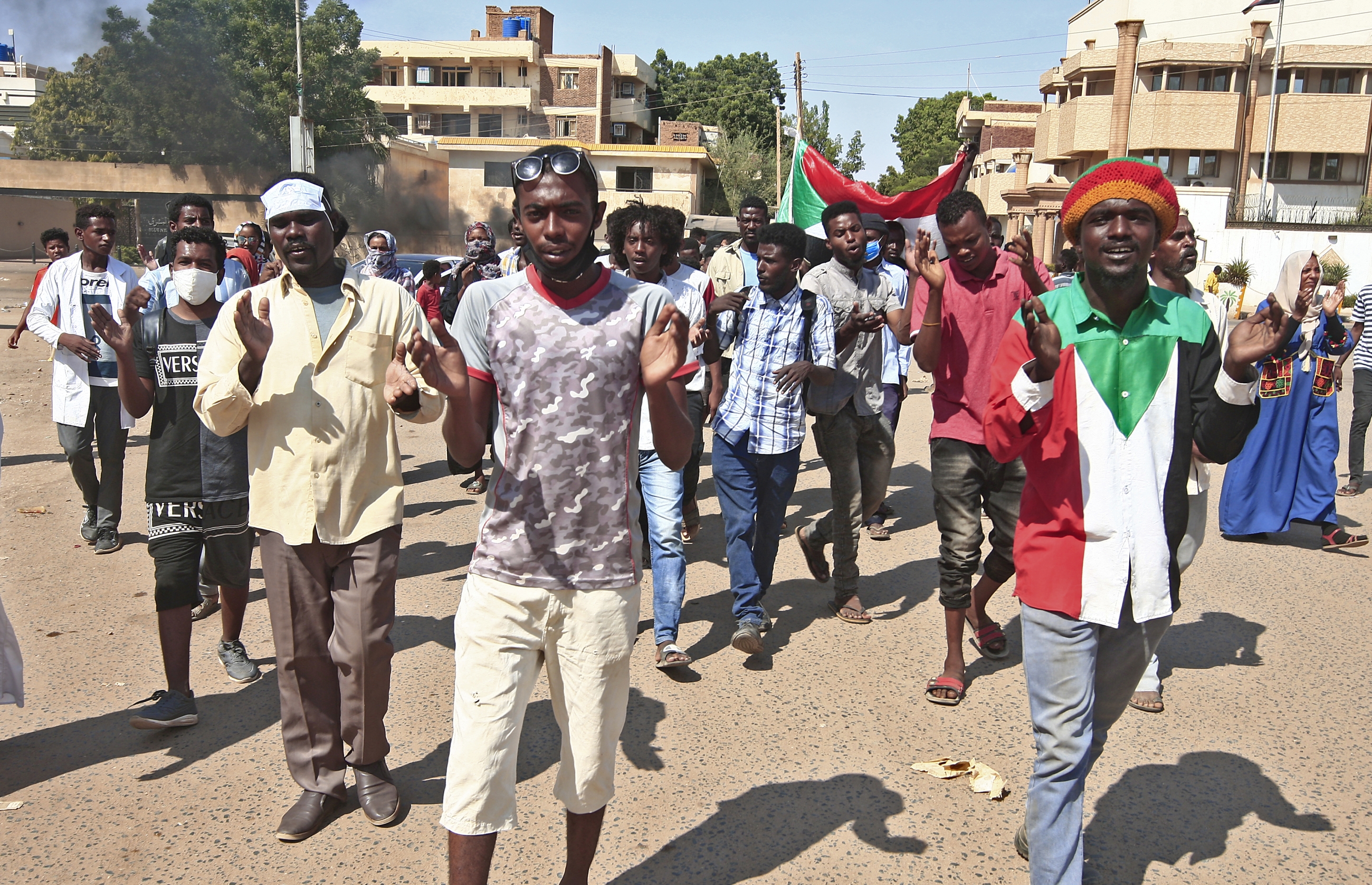
A tweet by Donald Trump has sparked wide discussion over the future benefits for Sudan after the US president said Washington would remove the country’s name from the list of nations it says sponsor terrorism.
After decades of waiting, millions of Sudanese heard the news on Monday that their country would be removed from the list, which Trump said was dependent on Khartoum paying $335m to the families of US victims killed in attacks in 1998 and 2000.
A source working for the Sudan taskforce that coordinates with the families of the victims of the attacks and the US administration told MEE that the president's tweet had been an agreed part of the process.
“The two sides had agreed that Trump’s tweet would be the signal to the Sudanese government to immediately pay the money which has already been put into an escrow account in a US bank,” the source told MEE under condition of anonymity.
New MEE newsletter: Jerusalem Dispatch
Sign up to get the latest insights and analysis on Israel-Palestine, alongside Turkey Unpacked and other MEE newsletters
He added that Trump had agreed to sign the executive order once the money had been transferred and that the money would be held in the account until Congress passes an immunity bill that will protect Sudan from any future lawsuits.
The Sudanese minister of information and government spokesman, Faisal Mohamed Saleh, confirmed to Middle East Eye on Tuesday that the money had been paid into an escrow account for those affected.
The monetary compensation will go to the victims of the 1998 US embassy bombings in East Africa and the attack on the USS Cole, a guided-missile destroyer, in 2000 off the coast of Yemen.
The attacks in Kenya and Tanzania killed more than 220 people, including US citizens and locals who worked at the embassies. In 2000, two suicide bombers targeted the USS Cole, killing 17 service members.
All three attacks were claimed by al-Qaeda. In subsequent years, Khartoum faced lawsuits in the US accusing the Sudanese government of harbouring the al-Qaeda operatives who planned and carried out the bombings.
The Sudanese government warmly welcomed the decision to remove the country from Washington's State Sponsor of Terrorism (SST) list, while stressing that Sudan had never been a terror state and that it now wanted to focus on overcoming the economic difficulties arising from having been blacklisted.
The government also denied reports that Sudan had agreed to normalise relations with Israel in return for being removed from the list.
Terror blacklist
The US's terror blacklist was established in 1979 for countries that "repeatedly provided support for acts of international terrorism", according to the State Department website.
Libya, Iraq, Syria and the former South Yemen were the first states to be listed and sanctioned under the SST. Sudan was added in 1993.
The sanctions cut countries off from financial markets, a move that can prove devastating for their economies. They also limit the kind of weapons countries can have and what goods they can export.
In addition, people and other entities under US jurisdiction are barred from doing business with countries on the list.
Sudanese officials and analysts expect that Trump's decision will strongly help the country's devastated economy and enable Sudan to reintegrate itself within the global financial system.
However, others argued that the collapsed economy is most in need of internal reform, restructuring and clear planning, focusing on local developments projects, rather than external funds and assistances.
'I can confirm here that there is no link between the issue of normalisation with Israel and the lifting of Sudan from the terror list'
- Sudan's Foreign Minister Omer Gamar Aldin
Sudan's Foreign Minister Omer Gamar Aldin said that Trump had the right to issue his decision through an executive order, before the endorsement of Congress.
Aldin also denied reports that Sudan had accepted a US condition to normalise relations with Israel in exchange for its removal from the terror blacklist.
“I can confirm here that there is no link between the issue of normalisation with Israel and the lifting of Sudan from the terror list… this step launches the first step of the return of Sudan to the international community,” he said.
Response
Amna Mahmoud, a 21-year-old information technology student at university in Sudan, told MEE that she had been waiting for the delisting to become a reality for a long time.
Mahmoud said that she now wanted to enjoy using advanced technology in Sudan, adding that the country had been banned from using many advanced tools and services because of being on the terror blacklist.
“We have been studying IT theoretically in Sudanese universities because we can’t do real practice as Sudan has been blocked from the majority of advanced technology,” she explained.
'We have been studying IT theoretically in Sudanese universities because we can’t do real practice as Sudan has been blocked from the majority of advanced technology'
- Amna Mahmoud, IT student
Mohamed Abdul Aalim, a member of the Sudanese resistance committees, described the delisting of Sudan as an historic step that would help to save the country's economy.
“We as youths are tired of the economic suffering and blocking of our country from the world. We want to engage with the free and advanced world in order to develop our country,” he told MEE.
In a public address to the nation, Sudan's Prime Minister Abdalla Hamdok said that Trump's move would help Sudan reenter the international community.
“This step will open the doors widely for the return of Sudan to the world, as Sudan has been blocked from the entire globe and now will return to the global financial system," he said.
"The attitude of the international community has led to the kicking out of Sudan from the world.
“This step also qualifies Sudan to get many benefits, including the handling of Sudan's foreign debts, which were more than $60m, and enable Sudan to deal with the international banks as well as investments.”
Criticism
Sudanese economist Mohamed Alnair told MEE that the delisting meant that Sudan would be able to deal with international banks regarding imports and exports, and so avoid the high prices that come with goods and spare parts bypassing the sanctions.
The hiring of third parties, which currently doubled imported prices and squeezes the economy, could also end.
“This step is like pushing a spirit into the dead body of the Sudanese economy, which is about to reach total collapse,” he said.
However, Kamal Karar, a member of the Forces of Freedom and Change (FFC) economic committee, downplayed Trump’s decision, saying that it did not mean that Sudan's economy would recover quickly.
“Our transitional government has rushed to accept all the humiliating American conditions, including normalisation with Israel, in exchange for the delisting," he said.
Karar said the government was accepting the conditions of the World Bank and International Monetary Fund to lift fuel subsidies in exchange for financial aid, which could negatively impact the productive economy.
"So it will only lead to solving the problems of the rich, not the majority of the population in the country.
“Unless Sudan adopts a really deep reformation, the fighting of corruption, the establishment of a strong system of auditing, transparency and good governance, as well as clear plans of development for the productive sectors, nothing will improve the economy, even if the United States and other rich countries pay billions to Sudan in the form of aid and loans.”
Sudanese political analyst Khalid Fathi told MEE that he believed the delisting was a political tactic for the US administration and Trump, in order to bolster the president's flagging re-election campaign.
“I do believe that the two governments in Sudan and Washington are both in crisis in different ways, especially with regard to Sudan's democratic transformation and support for the civilian-led government. So the two sides are both in need of this decision at the moment to improve their situations,” he said.
Middle East Eye delivers independent and unrivalled coverage and analysis of the Middle East, North Africa and beyond. To learn more about republishing this content and the associated fees, please fill out this form. More about MEE can be found here.


